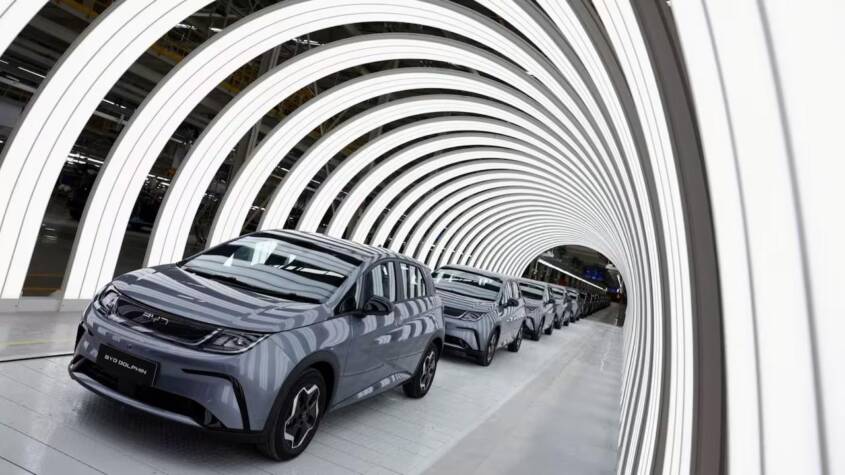- 111,139
- 834
- Origin

- Copy to clipboard
- Moderator
- #1
Source
:
https://www.brecorder.com/news/40281519/auto-sector-in-2023-advent-of-evs-and-hybrids-in-pakistan
Auto sector in 2023: advent of EVs and hybrids in Pakistan
Bilal HussainThe year 2023 signaled a downward spiral for the auto sector. For about half the year, there were restrictions from the State Bank of Pakistan (SBP) regarding Letters of Credit to import parts that kept the supply side under pressure which then led to higher prices. Amid high interest rates, and inflation, demand remained on the lower side as well.
The industry faced LC issues from July 2022 till February 2023. It again faced government action – this time, the reasons were different.
In October and November, auto companies weren’t getting custom clearance for importing Completely Knocked Down units or auto parts because they failed to achieve the 2% export target, which they initially agreed with the government but were unable to achieve.
Sales in fiscal year 2023 dropped to around 120,000 units (for all passenger categories and imported used cars) – lowest since 2009.
Looking at the data on hand, sales were possibly the lowest ever over the course of two-decades in just the first 11 months of calendar year 2023 – sitting at just 76,401 units.
For perspective, volume of sales was 210,395 units for the same period in 2022.
Silver lining
Industry experts such as Sunny Kumar, Deputy Head of Research at Topline Securities, expect car sales to improve in 2024.
One of the reasons is the expectation that interest rates may go down substantially next year. Car financing may also pick up again.
Since car buying is a feel-good event, the income generated from the Pakistan Stock Exchange rally may also be attracted by the auto sector.
EVs’ manufacturing licenses: two, three wheelers take front seat in Pakistan
Auto sector pivots?
Fuel prices have gone up and inflation has caused the contraction of real income. Mobility cost is biting common people.
They are looking for cheap options and, in a sense, electric vehicles, especially in the two-wheel segment, have emerged as an option in the year 2023.
There has been tangible work done in the two- and three-wheel sector during the year, as 32 companies that have received manufacturing licenses under the Electric Vehicles (EVs) Policy 2020–2025 are all two and three-wheel manufacturers.
Amid the bleak outlook of the auto sector, a major auto sector player launched a 4th generation hybrid vehicle (HEV) Toyota Corolla Cross.
Meanwhile, another major player, Atlas Honda unveiled its electric scooter ‘BENLEY e’ during a ‘soft’ launch this year, showing a direction for the two-wheel segment.
Adopting fuel-efficient cars has been the need of the hour in the absence of a wide-scale network of public transport. Maybe, Pakistan is now more ready to adopt climate-friendly solutions and, in this endeavour, kills two birds with one stone.

Auto sector in 2023: advent of EVs and hybrids in Pakistan
The year 2023 signaled a downward spiral for the auto sector. For about half the year, there were restrictions from...www.brecorder.com





